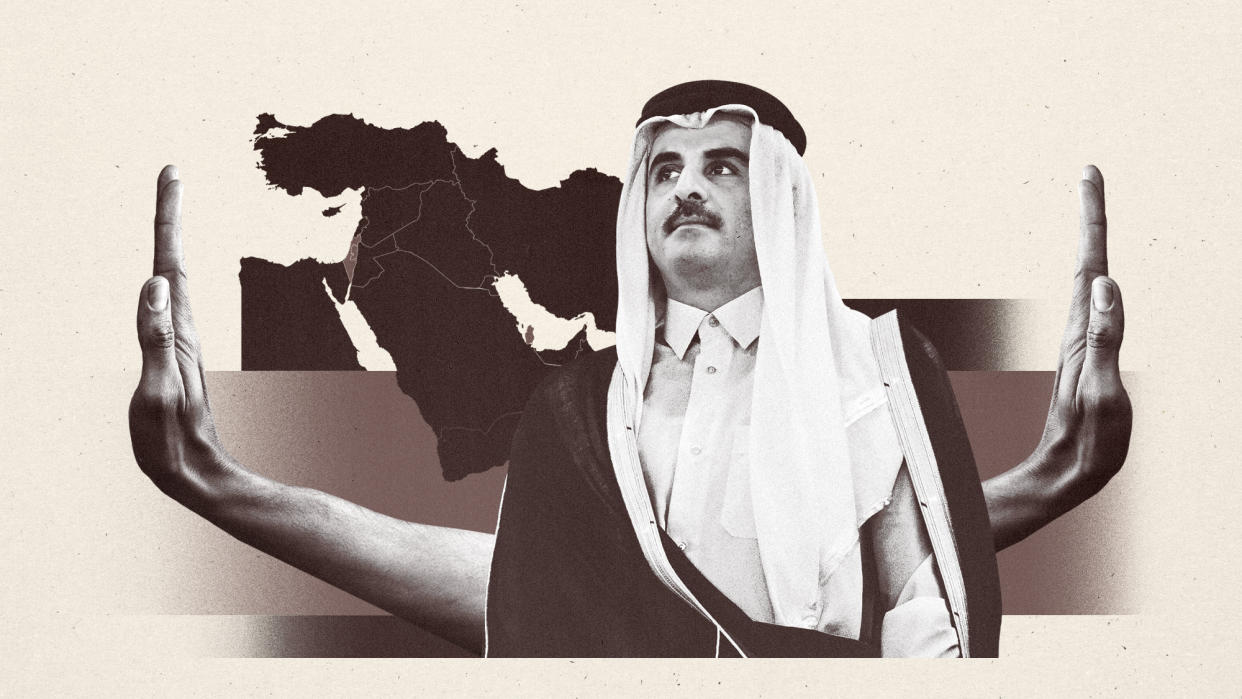What's Qatar's role in the Middle East conflict?

The pause is over. After a weeklong Qatar-brokered truce between Israel and Hamas, CBS News reported, the war resumed Friday morning. But Qatar mediators said they were working to restore the break in hostilities, issuing a statement that "negotiations between the two sides are continuing with the aim of returning to a pause."
How did Qatar come to occupy a central role in the conflict? The country and its government are "uniquely positioned" to mediate talks, The Associated Press reported. Qatar hosts the largest American military base in the region — and while it doesn't have formal diplomatic relations with Israel, the two countries routinely communicate through unofficial channels. But Qatar has also hosted an overseas Hamas political office for more than a decade and some top Hamas officials live there, "allowing Qatar to wield some influence over the militant group's decision-makers."
That friendliness with Hamas "has also elicited criticism in the West," Reuters reported. But Qatar's "personal connection to the militant group's key figures" has made negotiations viable. "They say, 'Look. We've provided an office and logistical support at tremendous reputational cost…We were the only ones who were there for you when you needed us and now is the time when you need to return the favor,'" said Mehran Kamrava, a professor at Georgetown University in Qatar. No other country may be as well-suited for the job.
What the commentators said
"The road to Middle East peace runs through Doha," Jason Pack argued at Foreign Policy. Some Israeli and American leaders are leery of Qatari leaders and "accuse them of wishing for Hamas to survive out of ideological affinity." But Israel and the West also need a "quietist, politically pluralistic version" of Islamism to emerge and "only Qatari largess can orchestrate this." The good news: "The Qataris have seen which way the wind is blowing and have been searching for cover to switch sides."
Or maybe Qatar's ties to Hamas "are a liability," Hussein Ibish of the Arab Gulf States Institute offered at The Atlantic. For many years "Doha has danced between its Islamist allies and its Western and Arab partners." That may no longer be plausible. The brutality of Hamas' Oct. 7 attack on Israel means that once the hostage crisis is completely over "Qatar is likely to face severe pressure and criticism" for its ties to the group. It's time to compel Qatar to "abandon a failed regional policy of backing religious and populist radicals."
Qatar's role in the conflict is "both messy but also necessary," Saeed Khan wrote for Haaretz. It's striking that the country hosts both a U.S. military base and a notorious terrorist organization. And some critics "would demand a line be drawn against Qatar hosting Hamas." But such a "binary view" of the world — you're either for us or against us — may not make the region safer. Without the messiness that comes from ties to both sides, "a government may close paths to de-escalation, even peace."
What next?
Those continued ties are likely to come under pressure, however. Politico reported that the Biden administration is contemplating a demand that Qatar shut down the Hamas office in the country, a move that "would be a significant reprimand for Hamas and an embarrassment for Qatar." That creates a "gnawing fear" that a critical backchannel between Israel, the U.S. and Hamas will be shut down. But American leaders appear to be holding firm. "We have made clear that following Oct. 7 there can be no more business as usual with Hamas," said one official. On the other hand: There are reports that Israeli leaders have promised not to assassinate Hamas leaders if they're in Qatar. It may be that some business is possible.
Despite the end of the truce, however, Israel and Qatar are still doing business. The Times of Israel noted that President Isaac Herzog and Qatar's Emir Tamim bin Hamad Al Thani were photographed shaking hands in the hours after hostilities resumed. Herzog's office said he "emphasized the humanitarian duty to release the hostages held by the terror group Hamas." This means that for now, Qatar will continue to play its central role in mediating the Israel-Hamas conflict.

